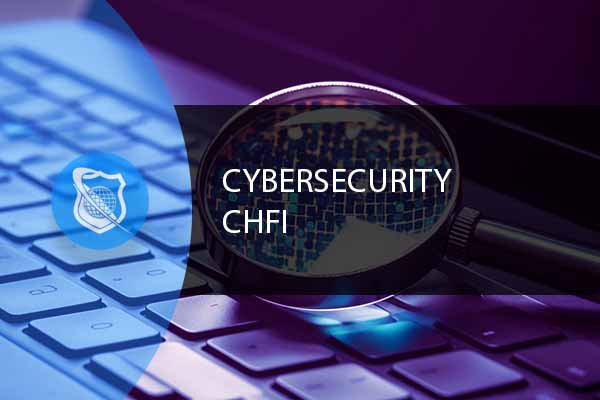In the rapidly evolving world of cybersecurity, the role of a computer hacking forensics investigator has become paramount. As a professional with 20 years of experience in the field, I’ve witnessed firsthand the transformation of this discipline from a niche specialty to a vital component of modern law enforcement and corporate security. A computer hacking forensics investigator is responsible for analyzing digital evidence, uncovering cybercrimes, and providing crucial insights that can lead to the prosecution of criminals. This blog will explore the career pathway of a computer hacking forensics investigator, shedding light on the skills, education, and experiences that shape this dynamic profession.
The Role of a Computer Hacking Forensics Investigator
Responsibilities and Daily Tasks
A computer hacking forensics investigator plays a critical role in the detection and prevention of cybercrimes. Their primary responsibilities include:
- Analyzing Digital Evidence: By examining digital devices and networks, a computer hacking forensics investigator uncovers hidden data, deleted files, and other digital footprints that can lead to the identification of criminal activities.
- Conducting Investigations: This involves following the trail of cybercrimes, working closely with law enforcement, and ensuring that the evidence collected is admissible in court.
- Providing Expert Testimony: In many cases, the investigator may be called upon to testify in court, explaining complex technical details in a way that judges and juries can understand.
Tools and Technologies Used
In my two decades of experience, I’ve seen the tools and technologies evolve, becoming more sophisticated and specialized. Some essential tools for a computer hacking forensics investigator include:
- Forensic Software: Tools like EnCase and FTK are widely used for data recovery and analysis.
- Hardware Tools: Specialized equipment for duplicating hard drives, analyzing network traffic, and more.
- Cybersecurity Measures: Ensuring that the investigation process itself is secure and that evidence is handled with the utmost integrity.

Computer Hacking Forensics Investigator
Embark on a thrilling career in cybersecurity with our CHFI Course – Computer Hacking Forensics Investigator. Master computer forensics, and fortify network integrity. Ideal for law enforcement, security professionals, and anyone passionate about cyber safety.
Ethical Considerations
Ethics plays a vital role in the work of a computer hacking forensics investigator. Adhering to legal requirements, respecting privacy, and maintaining confidentiality are paramount. The investigator must balance the pursuit of justice with the rights of individuals, a challenge that adds complexity and depth to this career.
Becoming a Computer Hacking Forensics Investigator
Educational Requirements
The pathway to becoming a computer hacking forensics investigator typically begins with a strong educational foundation. Most professionals in this field hold degrees in:
- Computer Science: Providing a solid understanding of programming, networks, and systems.
- Cybersecurity: Focusing on the protection of digital assets and information.
- Criminal Justice: Offering insights into the legal aspects of cyber investigations.
Certifications and Training
Certifications are essential in demonstrating expertise and staying up-to-date with the latest developments. Some notable certifications include:
- Certified Computer Hacking Forensics Investigator (CHFI): A globally recognized certification that covers all aspects of digital forensics.
- Certified Information Systems Security Professional (CISSP): A comprehensive certification for information security professionals.
Skills and Personal Attributes Needed
A successful computer hacking forensics investigator must possess a blend of technical skills and personal attributes such as:
- Analytical Thinking: The ability to analyze complex data and draw meaningful conclusions.
- Attention to Detail: Ensuring that no piece of evidence is overlooked.
- Communication Skills: Effectively conveying findings to both technical and non-technical audiences.

Computer Hacking Forensics Investigator
Embark on a thrilling career in cybersecurity with our CHFI Course – Computer Hacking Forensics Investigator. Master computer forensics, and fortify network integrity. Ideal for law enforcement, security professionals, and anyone passionate about cyber safety.
Career Opportunities and Growth
Job Market and Demand
The demand for computer hacking forensics investigators has surged in recent years, reflecting the growing threat of cybercrimes. Opportunities abound in various sectors, including:
- Law Enforcement: Working with police departments and federal agencies to solve cybercrimes.
- Corporate Sector: Protecting businesses from internal and external threats, ensuring compliance with regulations.
- Consulting Firms: Offering specialized services to a wide range of clients.
Potential Employers and Industries
A computer hacking forensics investigator can find employment in diverse industries such as:
- Technology Companies: Developing and maintaining secure systems.
- Financial Institutions: Protecting sensitive financial data.
- Healthcare Organizations: Ensuring the privacy and integrity of medical records.
Career Progression and Specialization
With experience, a computer hacking forensics investigator may move into leadership roles or specialize in areas like:
- Malware Analysis: Focusing on the identification and neutralization of malicious software.
- Legal Consultancy: Providing expert advice on legal matters related to cybercrimes.
- Education and Training: Teaching the next generation of investigators.
Challenges and Rewards
Common Challenges Faced in the Field
The work of a computer hacking forensics investigator is not without challenges:
- Rapid Technological Changes: Keeping up with the ever-evolving landscape of technology.
- Legal and Regulatory Compliance: Navigating complex legal frameworks.
- Emotional Toll: Dealing with serious and sometimes disturbing content.
Rewards and Satisfaction of the Role
Despite the challenges, the rewards are significant:
- Making a Difference: Playing a vital role in bringing criminals to justice.
- Intellectual Stimulation: Engaging in complex problem-solving and continuous learning.
- Financial Rewards: Competitive salaries and opportunities for advancement.
Case Studies and Real-World Applications
Examples of Real-World Investigations
Throughout my 20-year career, I’ve been involved in numerous high-profile cases, including:
- Corporate Espionage Investigations: Uncovering attempts to steal trade secrets.
- Financial Fraud Detection: Tracing complex financial crimes and money laundering.
- Counter-Terrorism Efforts: Assisting in the identification and prevention of cyber threats related to terrorism.
Impact on Cybersecurity and Law Enforcement
The work of a computer hacking forensics investigator extends beyond individual cases, contributing to:
- Enhanced Security Protocols: Developing and implementing robust security measures.
- Collaboration with International Agencies: Working across borders to combat global cyber threats.
- Shaping Legislation: Influencing policies and regulations that govern the digital realm.
Conclusion
The career pathway of a computer hacking forensics investigator is both challenging and rewarding. From the technical intricacies of digital analysis to the ethical considerations that guide the profession, this field offers a dynamic and fulfilling career. As cyber threats continue to evolve, the role of the computer hacking forensics investigator will only grow in importance, offering exciting opportunities for those ready to take on the challenge.

Computer Hacking Forensics Investigator
Embark on a thrilling career in cybersecurity with our CHFI Course – Computer Hacking Forensics Investigator. Master computer forensics, and fortify network integrity. Ideal for law enforcement, security professionals, and anyone passionate about cyber safety.
Frequently Asked Questions About Becoming a Computer Hacking Forensics Investigator
What is a Computer Hacking Forensics Investigator, and what do they do?
A computer hacking forensics investigator is a professional who specializes in the detection and prevention of cybercrimes. They analyze digital evidence, conduct investigations, provide expert testimony in court, and work closely with law enforcement and corporate entities to uncover and prosecute cybercriminals.
What educational background is needed to become a Computer Hacking Forensics Investigator?
To become a computer hacking forensics investigator, individuals typically pursue degrees in computer science, cybersecurity, or criminal justice. Additional certifications, such as the Certified Computer Hacking Forensics Investigator (CHFI), are often required to demonstrate expertise in the field.
How can I start a career as a Computer Hacking Forensics Investigator?
Starting a career as a computer hacking forensics investigator involves obtaining relevant education, gaining certifications, and acquiring hands-on experience. Networking with professionals in the field, attending workshops, and seeking internships or entry-level positions can provide valuable insights and opportunities.
What are the challenges and rewards of being a Computer Hacking Forensics Investigator?
The challenges of being a computer hacking forensics investigator include keeping up with rapid technological changes, navigating legal and regulatory compliance, and managing the emotional toll of serious investigations. The rewards include making a significant difference in the fight against cybercrime, engaging in intellectually stimulating work, and enjoying competitive financial benefits.
Where can a Computer Hacking Forensics Investigator find employment?
A computer hacking forensics investigator can find employment in various sectors, including law enforcement agencies, corporate businesses, technology companies, financial institutions, healthcare organizations, and consulting firms. The diverse opportunities reflect the growing importance of this role in today’s digital landscape.

Lock In Our Lowest Price Ever For Only $14.99 Monthly Access
Your career in information technology last for years. Technology changes rapidly. An ITU Online IT Training subscription offers you flexible and affordable IT training. With our IT training at your fingertips, your career opportunities are never ending as you grow your skills.
Plus, start today and get 10 free days with no obligation.
























